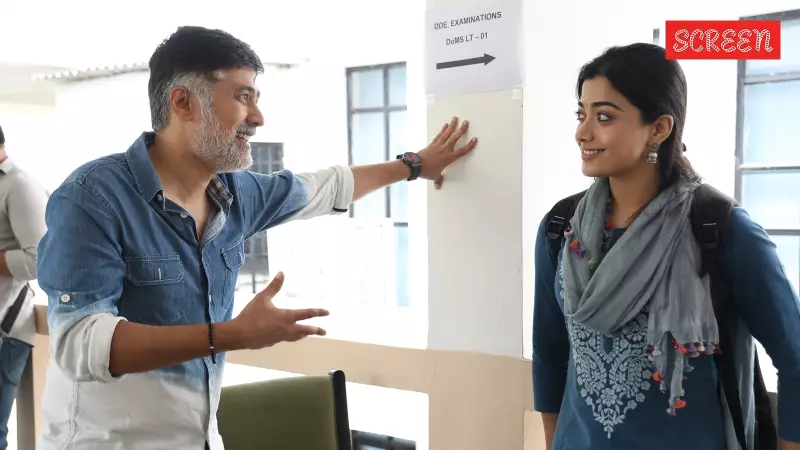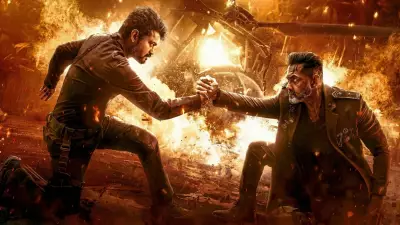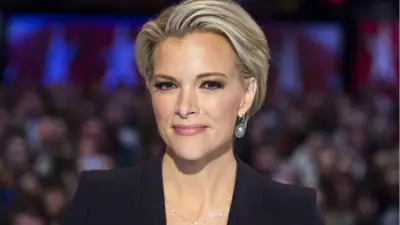
Director Rahul Ravindran's latest film, The Girlfriend, is making waves for its authentic and unflinching portrayal of modern relationships. The movie, which features a delicate yet stirring performance from Rashmika Mandanna, has been praised for upending mainstream Indian cinema's norms around female autonomy and coercive masculinity.
The Search for Bhooma's Transparent Eyes
In an exclusive interview, Ravindran revealed his specific criteria for casting the lead role of Bhooma. "I wanted an actor with very transparent eyes to play Bhooma," the director stated. He explained that while many aspects of an actor can be altered, the eyes remain unchanged, and he needed an actress whose close-ups would give the audience a clear view of her inner world.
Ravindran didn't have any particular actor in mind during the writing process but knew immediately that Rashmika Mandanna possessed this quality. Her status as an A-lister certainly helped the film's reach, but the director emphasized that it was her "exceptionally intuitive, lived-in performance" that truly made the character resonate with audiences.
A Story Born from Personal Observation
The genesis of The Girlfriend came from Ravindran's observations of South Indian cinema about a decade ago. He noticed a trend glorifying the 'soup boy' archetype and the enthusiastic audience response it generated. "I decided I wanted to make a film where I just turned the camera gently and framed the other party," he shared.
This desire to create empathy for the often-unheard perspective in relationships became the driving force behind the screenplay. Ravindran wanted to make audiences uncomfortable rather than have them whistle and clap, aiming to start conversations that aren't generally had in Indian society.
Rashmika's Personal Connection to Bhooma
The connection between actress and character ran deep. Rashmika Mandanna, who grew up in hostels from a young age, related strongly to Bhooma's experiences. Ravindran explained that she connected with "being pushed into a current and then going with the flow" during formative years when she didn't yet have a fully-formed personality.
Particularly resonant for Rashmika was Bhooma's inability to express feelings, which the director believes allowed her to internalize the performance so effectively. This personal understanding of the character's psychology translated into a portrayal that has earned widespread acclaim.
Navigating Narrative Challenges and Male Gaze
Constructing a narrative around a largely passive protagonist in the first half presented unique challenges. Ravindran described Bhooma's early arc as "a collection of reaction shots of a person who barely has any control over her own life." However, he remained committed to this approach because the story demanded it.
Conscious of potential concerns about male gaze in his writing, Ravindran demonstrated remarkable self-awareness. After completing his first draft, he sent it to 12-13 women friends to verify the authenticity of Bhooma's psychology. Their emotional responses and personal stories confirmed he was on the right track, though they did prompt one significant change.
The women objected to a post-climax scene showing Vikram's redemption, feeling it was unfair without properly addressing his growth or consequences for his actions. Ravindran removed the scene based on this feedback, prioritizing the authenticity of Bhooma's story.
The Film's Impact and Hopeful Message
The response to The Girlfriend has been overwhelming, particularly from women who feel starved for content that resonates with their experiences. Ravindran described receiving messages from people who have endured unhealthy relationships, sharing stories that are "really heartbreaking, disturbing and difficult to digest."
Despite creating Vikram as an antagonist figure, Ravindran approaches the character with care and affection, hoping young men watching will reflect on their behavior. The director has already received messages from men who have not only reflected on themselves but actually changed for the better, fulfilling the film's purpose of fostering empathy and introspection.
Regarding Bhooma's post-climax life shown in snippets, Ravindran emphasized he kept her achievements attainable - getting a job, buying a car, receiving promotions - rather than making her an incredible achiever. This deliberate choice makes her success feel within reach for everyday viewers, maintaining the film's connection to reality while offering hope and inspiration.





